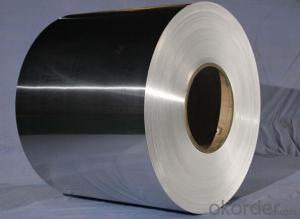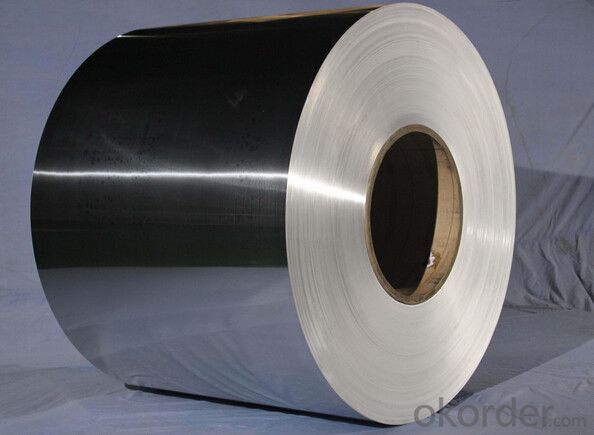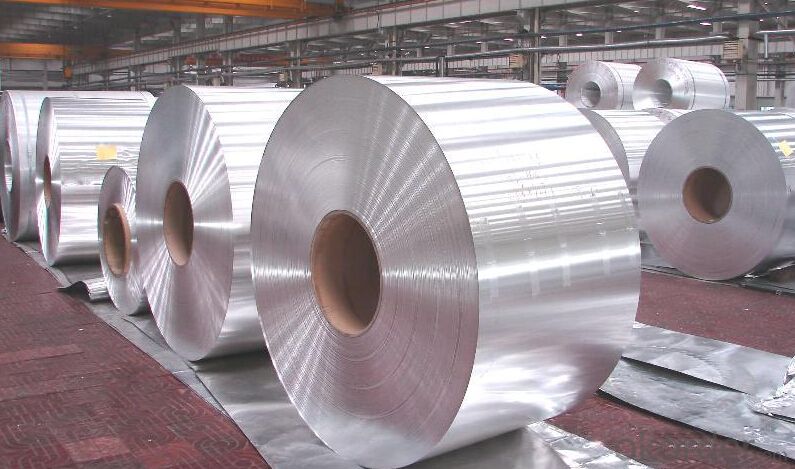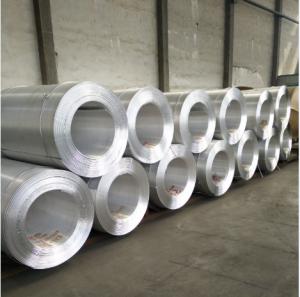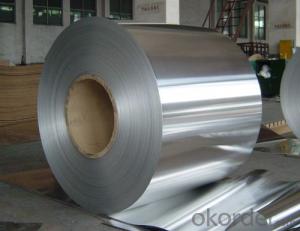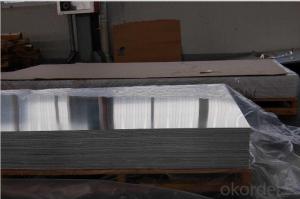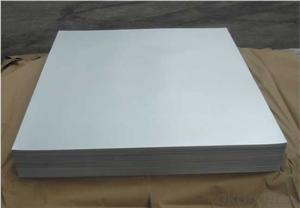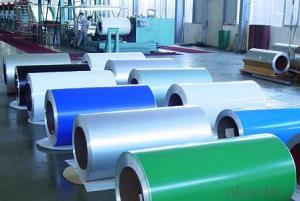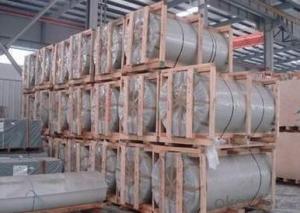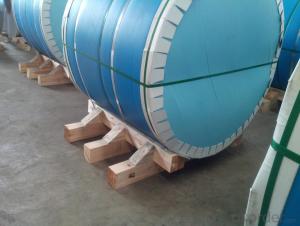Customized 1050 Prime Quality 3003 Aluminium Coil, 3003 Aluminum Roll
- Loading Port:
- Shanghai
- Payment Terms:
- TT OR LC
- Min Order Qty:
- 5 m.t.
- Supply Capability:
- 5000 m.t./month
OKorder Service Pledge
Quality Product, Order Online Tracking, Timely Delivery
OKorder Financial Service
Credit Rating, Credit Services, Credit Purchasing
You Might Also Like
Specification
Grade:
3000 Series,1000 Series,7000 Series,5000 Series
Surface Treatment:
Color Coated,Anodized,Embossed
Shape:
Oval,Flat,Square
Temper:
Hard,Half Hard,Soft,O-H112
Application:
Kitchen Use,Transportation Tools,Decorations
Technique:
DC/CC
Thickness:
0.05-4.0mm
Width:
900--1500mm
Net Weight (kg):
2.5 ton
Packaging:
Wooden pallets
Prime Quality 3003 Aluminium Coil , 3003 Aluminum Roll
Packaging & Delivery
| Packaging Details: | Standard seaworthy packages in bundles or as per requirement. Container size: The inner size of container is below: 20ft GP: 5.8m(length) x 2.13m(width) x 2.18m(high) about 24-26CBM 4 0ft GP: 11.8m(length) x 2.13m(width) x 2.18m(high) about 54CBM 40ft HG: 11.8m(length) x 2.13m(width) x 2.72m(high) about 68CBM(stainless steel seamless pipe) |
| Delivery Detail: | Shipped in 18 days after payment |
Product Specification | |
Grade | 1000 Series: 1050 1060 1100 3000 Series: 3003 3004 3105 5000 Series: 5052 5605,5083 6000 Series: 6061 6063 8000 Series: 8011 8021 8079 |
Thickness | 0.20-8.00mm |
Width | 2400mm max. |
Grade | 1000,3000,5000,6000,8000series |
Coil ID | 75mm, 150mm, 200mm, 300mm, 400mm, 508mm or negotiable |
Coil weight | 1000-5000kgs |
Coil OD | 1700mm max. |
Temper | O, H12, H14, H16, H111, H22 ,H24, H26, H28,T4, T6,etc. |
| Temper | |
| F | processing state |
| H | strain hardening state |
| O | annealing |
| T | heat treatment state |
| H112 | pure state of strain hardening, adjustment has been made to degree of strain hardening and annealing |
| T4 | solid solution treatment and natural efficiency to achieve sufficient stability condition |
| T5 | artificial aging condition of the reentry after high temperature thermal cooling |
| T6 | artificial aging state after solid solution treatment |
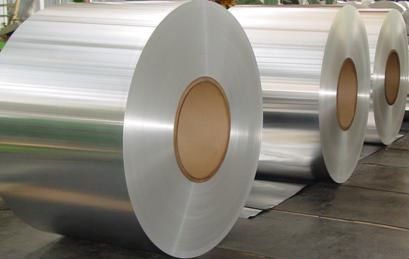
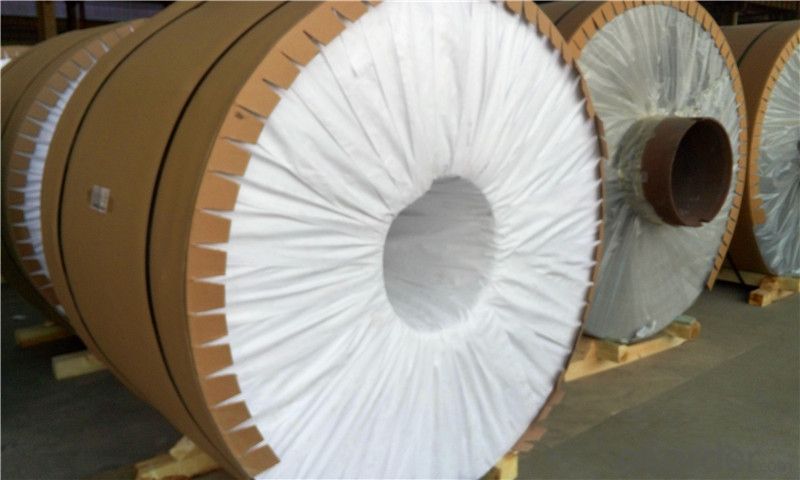
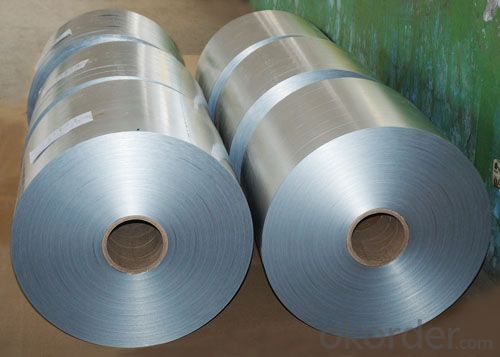
- Q: What is the creep resistance of aluminum coils?
- The creep resistance of aluminum coils is generally high, as aluminum has a low melting point and exhibits minimal creep deformation under normal operating conditions.
- Q: What is the maximum temperature resistance of aluminum coils?
- The maximum temperature resistance of aluminum coils depends on various factors, such as the alloy composition, purity, and the specific application. However, in general, aluminum has a relatively low melting point of around 660 degrees Celsius (1220 degrees Fahrenheit). Consequently, the maximum temperature resistance of aluminum coils typically ranges between 200 and 400 degrees Celsius (392 to 752 degrees Fahrenheit). Beyond these temperatures, aluminum may start to undergo structural changes, such as softening or deformation, which can impact its performance and integrity. Therefore, it is important to consider the specific requirements and limitations of the application when determining the maximum temperature resistance of aluminum coils.
- Q: What should pay attention to transporting aluminum coil?
- You must ensure the good property of the aluminum coil.
- Q: Can aluminum coils be used for marine applications?
- Yes, aluminum coils can be used for marine applications. Aluminum has excellent corrosion resistance properties, making it suitable for marine environments. It is lightweight, durable, and can withstand exposure to saltwater, making it a popular choice for boats, ships, and other marine structures.
- Q: Can aluminum coils be used in food storage facilities?
- Yes, aluminum coils can be used in food storage facilities. Aluminum is a widely used material in the food industry due to its excellent properties such as its lightweight, durability, corrosion resistance, and heat conductivity. These qualities make aluminum coils suitable for various applications in food storage facilities. Aluminum coils can be utilized in refrigeration systems, air conditioning units, and food storage cabinets, among others. Additionally, aluminum is non-toxic and does not react with food or alter its taste, making it a safe option for food storage. However, it is important to ensure that the aluminum coils used in food storage facilities are properly cleaned and maintained to prevent any potential contamination.
- Q: Are there any limitations to the maximum coil length of aluminum coils?
- The maximum length of aluminum coils is subject to certain limitations. Factors that affect the maximum coil length include the thickness and width of the coil, the strength and tensile properties of the aluminum alloy, the equipment used for coil processing, and the intended application of the coil. One limitation is the strength and ductility of the aluminum alloy. Aluminum alloys with higher strength and lower ductility may have restrictions on the maximum coil length due to the risk of coil breakage or deformation during processing or handling. Another limitation is the coil processing equipment. The maximum coil length is often determined by the size and capabilities of the equipment used for slitting, cutting, or forming the coils. If the equipment has limited capacity or is not designed for longer coils, it may not be able to effectively handle or process longer lengths. The intended application of the coil can also impose limitations. For example, in the automotive industry, there may be restrictions on the maximum coil length based on the size and weight limitations of the vehicles. Moreover, logistical factors such as transportation and storage can also impose limitations. Longer coils may be more challenging to handle, transport, and store, which can increase the risk of damage or pose challenges in terms of logistics and space requirements. Therefore, it is crucial to consider various factors such as alloy properties, equipment capabilities, application requirements, and logistical considerations to determine the practical limitations of coil length for a specific situation, as there is no specific universal limit to the maximum coil length of aluminum coils.
- Q: How are aluminum coils used in the production of gutters and downspouts?
- Aluminum coils are used in the production of gutters and downspouts by being formed and shaped into the desired gutter or downspout profile. The coils are typically fed through a roll-forming machine that bends and molds the aluminum into the specific shape and size required. This process allows for the production of seamless gutters and downspouts, providing a more efficient and aesthetically pleasing solution for drainage systems.
- Q: Are aluminum coils suitable for interior design applications?
- Yes, aluminum coils are suitable for interior design applications. Aluminum is a versatile material that offers a wide range of benefits for interior design projects. Firstly, aluminum is lightweight, making it easy to handle and install. This is especially advantageous for projects that require large-scale installations or suspended ceilings. Additionally, aluminum coils are highly durable and resistant to corrosion, ensuring their longevity and making them suitable for high-traffic areas. Furthermore, aluminum can be easily customized and shaped to meet specific design requirements, allowing for endless design possibilities. The material is also available in a variety of finishes, such as brushed, polished, or anodized, which can enhance the aesthetic appeal of any interior space. Moreover, aluminum is a sustainable and eco-friendly option, as it is easily recyclable and has a low carbon footprint compared to other materials. Overall, aluminum coils are a practical and aesthetically pleasing choice for interior design applications.
- Q: How are aluminum coils cut to length?
- Aluminum coils are typically cut to length using a process known as shearing or slitting. Shearing involves using a set of sharp blades to cut the coil into multiple shorter lengths. This method is commonly used for thicker aluminum coils. Slitting, on the other hand, is a process in which the coil is passed through a set of rotating circular knives that cut the coil into narrower strips of the desired width. This method is often used for thinner aluminum coils. Both shearing and slitting processes can be manual or automated, depending on the scale of production and the specific requirements of the project. Automated cutting machines are commonly used for large-scale production as they offer higher precision and faster cutting speeds. It is important to note that during the cutting process, the coil is often uncoiled and fed through the cutting machine. Once the desired length or width is achieved, the cut aluminum pieces are then collected, bundled, and prepared for further processing or distribution.
- Q: what is the most likely charge for aluminum cation?the answer is +3, but why? how can i figure this out with different ones?
- This Site Might Help You. RE: what is the most likely charge for aluminum cation? what is the most likely charge for aluminum cation? the answer is +3, but why? how can i figure this out with different ones?
Send your message to us
Customized 1050 Prime Quality 3003 Aluminium Coil, 3003 Aluminum Roll
- Loading Port:
- Shanghai
- Payment Terms:
- TT OR LC
- Min Order Qty:
- 5 m.t.
- Supply Capability:
- 5000 m.t./month
OKorder Service Pledge
Quality Product, Order Online Tracking, Timely Delivery
OKorder Financial Service
Credit Rating, Credit Services, Credit Purchasing
Similar products
Hot products
Hot Searches
Related keywords
